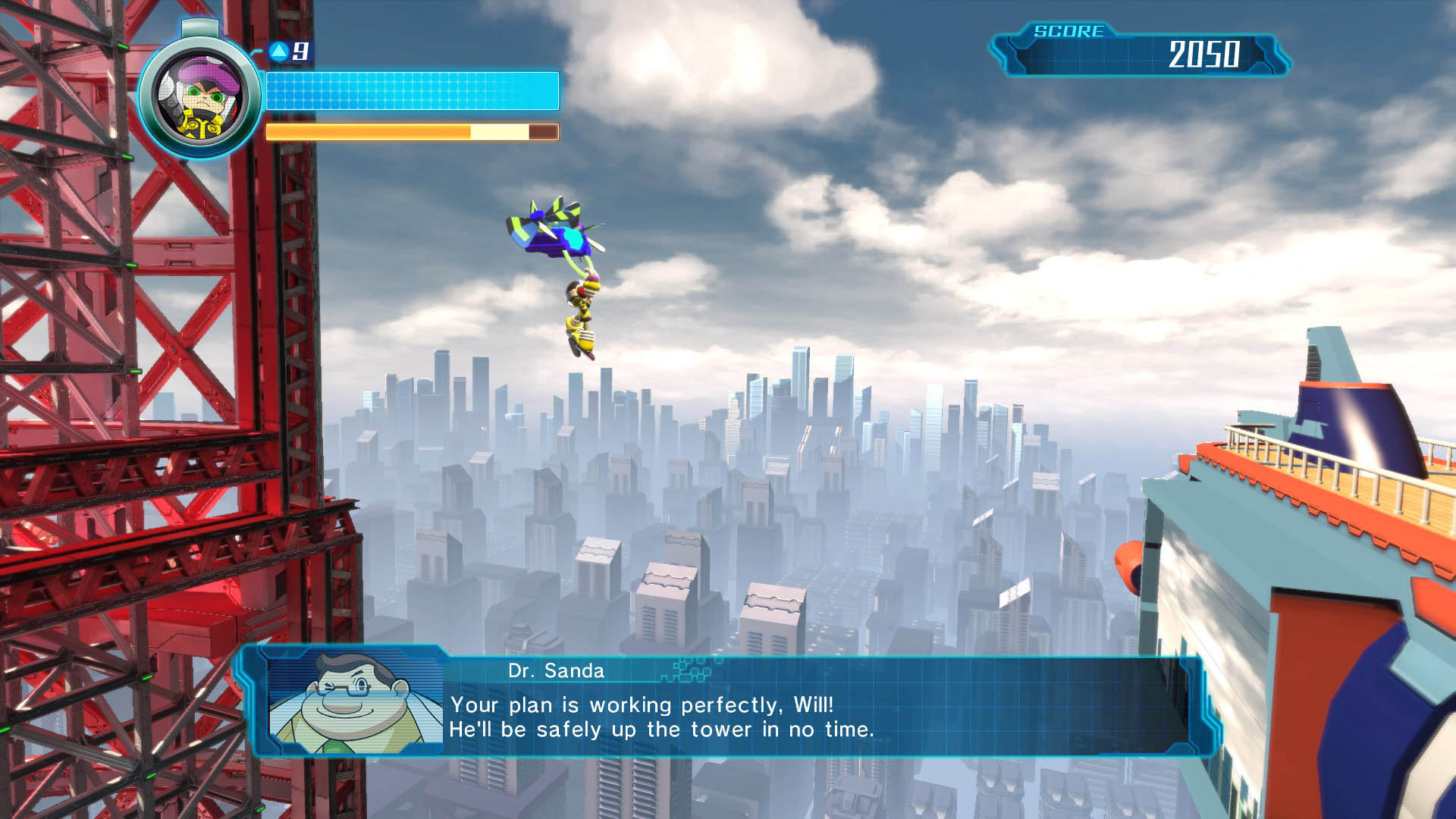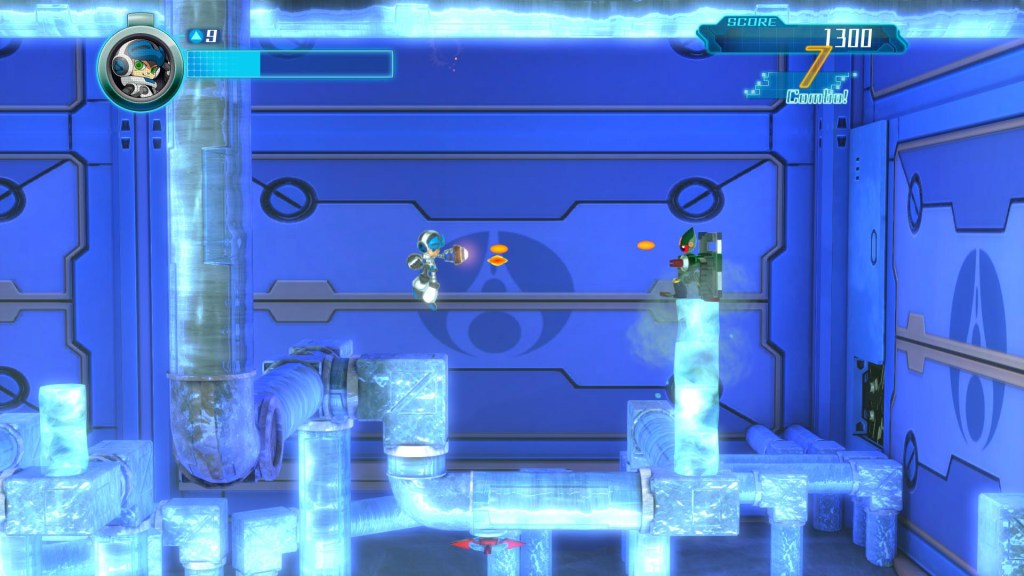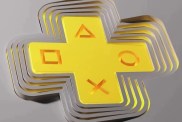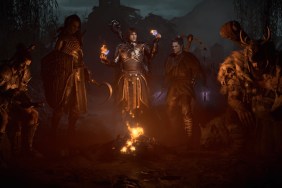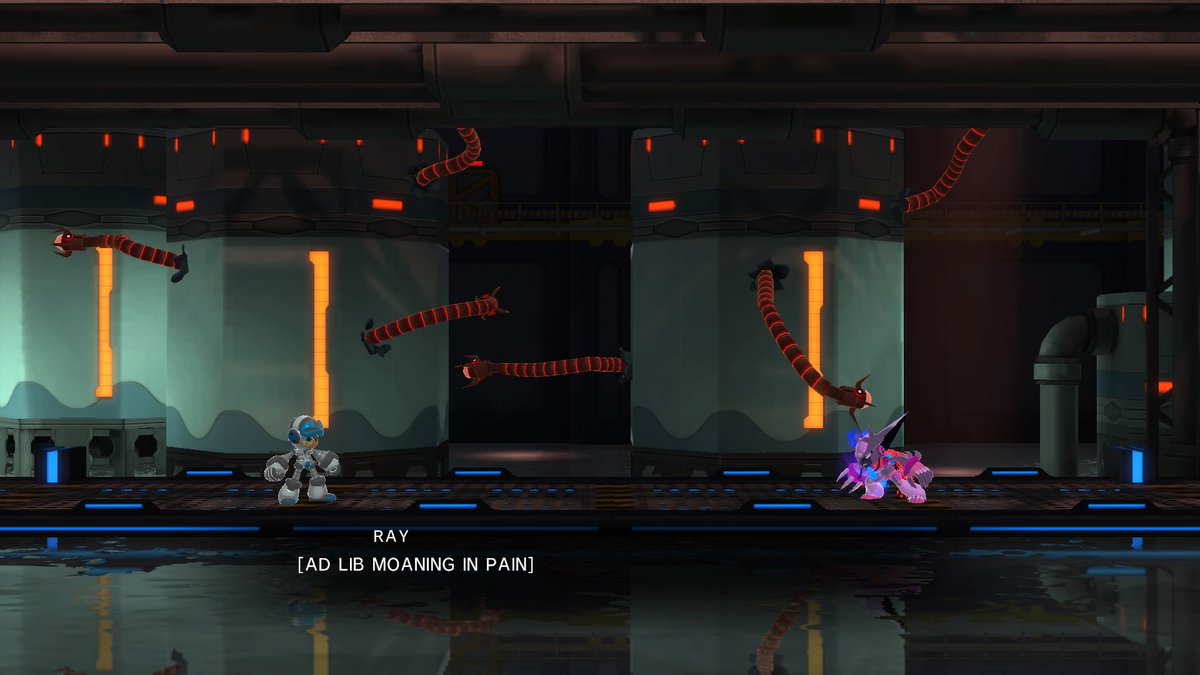
Crowdfunding services like Kickstarter have given gamers the ability to put their money where their mouths are. After years of hearing gamers say on forums that they’d pay “$500 for a new game” in a beloved series, I found out that some of these people are actually serious. It’s why the biggest successes on these services have been nostalgia plays, such as Yooka-Laylee and Mighty No. 9, rather than original ideas. Games that are trying to recapture the magic of a bygone era, and create something that publishers don’t want to put out (even if there might be merit as to why).
Be careful what you wish for, though, as gamers got exactly what they wanted: a brand new Mega Man game in everything but name. Keiji Inafune’s Mighty No. 9 definitely succeeds in that regards. It’s a title with many shortcomings, but it definitely feels like a new game for the Blue Bomber. Players are tasked with defeating eight evil robots (each with their own one-dimensional gimmick like fire or ice), gain abilities for completing levels, and can use those same abilities to make other stages considerably easier. It follows that formula to a T because that’s what the audience wanted.
Mighty No. 9 isn’t devoid of original ideas, though, as its protagonist Beck (who I assume likes to sit around and get real paid) has a dash ability that absorbs damaged enemies. Sometimes, although I can’t say with certainty why it occurs or doesn’t since the game does a poor job of explaining its mechanics, Beck will even gain temporary power-ups (typically stat boosts such as faster movement or more powerful bullets) from absorbing enemies. So that means there’s a benefit to absorbing enemies rather than just shooting them repeatedly until they explode (which isn’t too satisfying anyways since the special effects don’t look great).
Despite this absorbing mechanic being the main differentiator between Beck and another blue robot, the levels aren’t really designed around it. Every stage is filled with sections that require pinpoint platforming, and don’t offer up the space necessary to do this dashing maneuver. This could’ve been solved by allowing players to absorb while standing still, but trying to pick up enemy’s battered bodies largely led to extra deaths early on. I eventually got better at performing short bursts that didn’t send Beck careening off into a bottomless pit, but I was still always weary about using this mechanic.
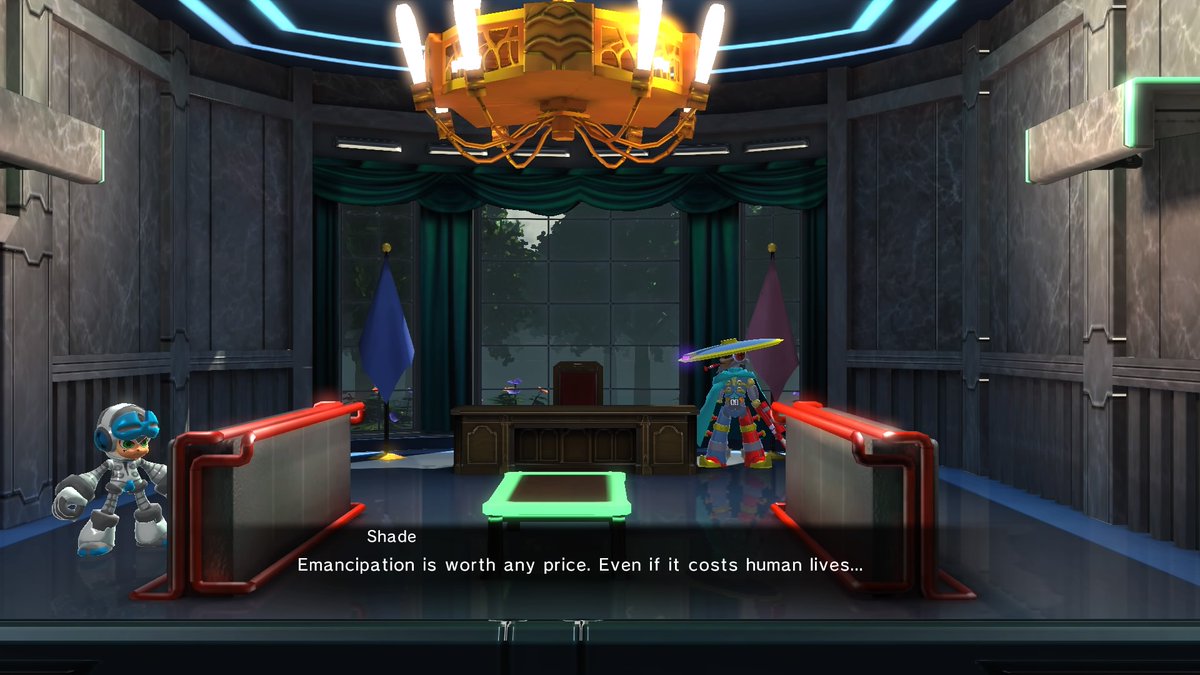
Not So Mighty
It’s probably a good thing that Mighty No. 9‘s base mechanic will lead to plenty of deaths (or at least unnecessary damage) early on, as players will have to get used to looking at the game over screen. Much like its inspiration, this is a very difficult game. The challenge essentially boils down to memorizing level designs and knowing what’s coming up next. That’s fine, but almost every stage also has an infuriatingly difficult platforming section (such as jumping from car to car on a highway or avoiding falling buildings) that has to be nailed in one go. Considering the game starts the player off with a mere three lives (tip: it can be upped to nine lives in the menu), it requires a near perfect run from players to complete a level.
The harsh difficulty often led to me reaching the end of level boss on my last life, getting to see some of their attack patterns, and then dying. That meant I then had to start the level from the very beginning again, and it essentially delayed my attempts to learn these boss fights by 10 minutes each time. I eventually upped the number of lives the player can start off with so I got more immediate practice in, but it’s hardly a proper workaround. An option to allow players to retry levels from their last checkpoint would’ve eased a lot of the frustration, and Mighty No. 9 feels like a game beholden to old gaming ideals simply because they were the norm in the ’80s.
Boss fights are generally the game’s strongest suit (aside from the final boss which has multiple forms and is just not fun to deal with at all), as these battles will really test player’s memorization and reflexes. There are easy paths to victory if you use the right weapon (and the game actually takes this concept a step further by making the stage a bit easier since the Mighty Number you previously helped out will assist you earlier on), and anyone who has played Mega Man will know what to expect here.
That said, not every boss fight is enjoyable. Several of the boss fights feature segments where the opposing robot can kill Beck in one hit, and this leads to a lot cursing (and maybe even controller throwing). It doesn’t help that the characters will deliver the same cheesy one-liner repeatedly as well, which only increased my annoyance while playing. I have no issue learning boss patterns, but to require flawless execution from the player constantly is a bit overkill. By the time I defeated most bosses in Mighty No. 9 I felt relief, not satisfaction. I was just happy I didn’t have to play through the game’s level again, and didn’t feel like I had accomplished something.
That’s largely Mighty No. 9‘s biggest issue: it doesn’t feel satisfying. This is a far cry from other challenging games like Salt and Sanctuary where every ounce of progress felt like a genuine accomplishment that I wanted to tell the world about. Instead, I was left playing a title that is stuck in the past, and is ultimately worse off due to it.
It’s a real shame that the core game isn’t more fun since there’s a lot of content here. There are challenges (which range from tutorials to time trials that limit your abilities) that take place in a virtual reality world (which hilariously looks better than most of the PSP-quality locales that most stages take place in), and even co-op (although online only) levels that have Beck and his assistant Call working together (who is briefly playable in one of the game’s single-player levels). Throw in a boss rush mode & online races and you have a package that you could sink dozens of hours into. Sadly, I don’t feel that desire, and it sucks that so much hard work is essentially thrown away in these extra modes.
Mighty No. 9 also suffers from an identity crisis where it wants to have a meaningful narrative, but barely attempts to create any memorable characters. The developers needed to either make the story a meaningful one, or dropped it completely. Instead, players are treated to one that touches on some interesting subjects (one of the robots feels like robots shouldn’t have to serve humans and actually makes some pretty darn good points), but there’s no payoff to any of this.
Also–Ran
If there’s one surprise about Mighty No. 9 it’s how unpolished certain aspects are. For a game that raised over four million dollars (that’s seven digits, folks) it’s not unreasonable to expect character’s mouths to move during cutscenes. It’s genuinely baffling to see overly dramatic dialogue being delivered by an anime-looking character with his mouth shut. Who knows, maybe this was the next stretch goal that it never managed to hit.
If anything, there’s a feeling of missed potential that surrounds the product. After players finish taking down the obligatory eight robot masters (sorry, Mighty Numbers if you want to get technical), the game has its best level yet. The stage forced me to use all of the skills I had obtained in other levels in order to progress. I used missiles as a timed explosive, and was forced to use the air power-up in order to reach a high location. It was great, and it’s really the only time that the game even toys with these ideas, and made me think about how I should progress. Mighty No. 9‘s commitment to nostalgia and the structure of the original Mega Man really hurts the title, as a more traditionally designed platformer using the gameplay could’ve been a blast.
It’s hard to classify Mighty No. 9 as a disappointment since it’s clearly the title that Inafune and Comcept pitched back in September of 2013. Sure, it took an additional year to come to fruition, but this is very much the Mega Man spiritual successor that the team wanted to create. It has clear issues, several of which stem from basing your game on a 20+ year old formula, but you could’ve largely predicted this result three years ago. It’s an unoriginal platformer built around nostalgia that plays an awful lot like Mega Man, except it’s not 1987 anymore.
The final line of dialogue in the story posits that only time will tell if “this Mighty No. 9 is a blessing or a curse.” The statement probably wasn’t meant to be as fitting or applicable to the finished game as it ultimately is, but maybe it was a rare moment of introspection.
Review code for Mighty No. 9 provided by publisher. Reviewed on PlayStation 4. For more information on scoring, please read our Review Policy here.
-
For better or worse it feels like Mega Man
-
Boss fights are interesting
-
Plenty of content
-
Victory feels more like a relief than an accomplishment
-
Shockingly unpolished in spots
-
Needs a more customizable difficulty
Mighty No. 9
-
Mighty No. 9
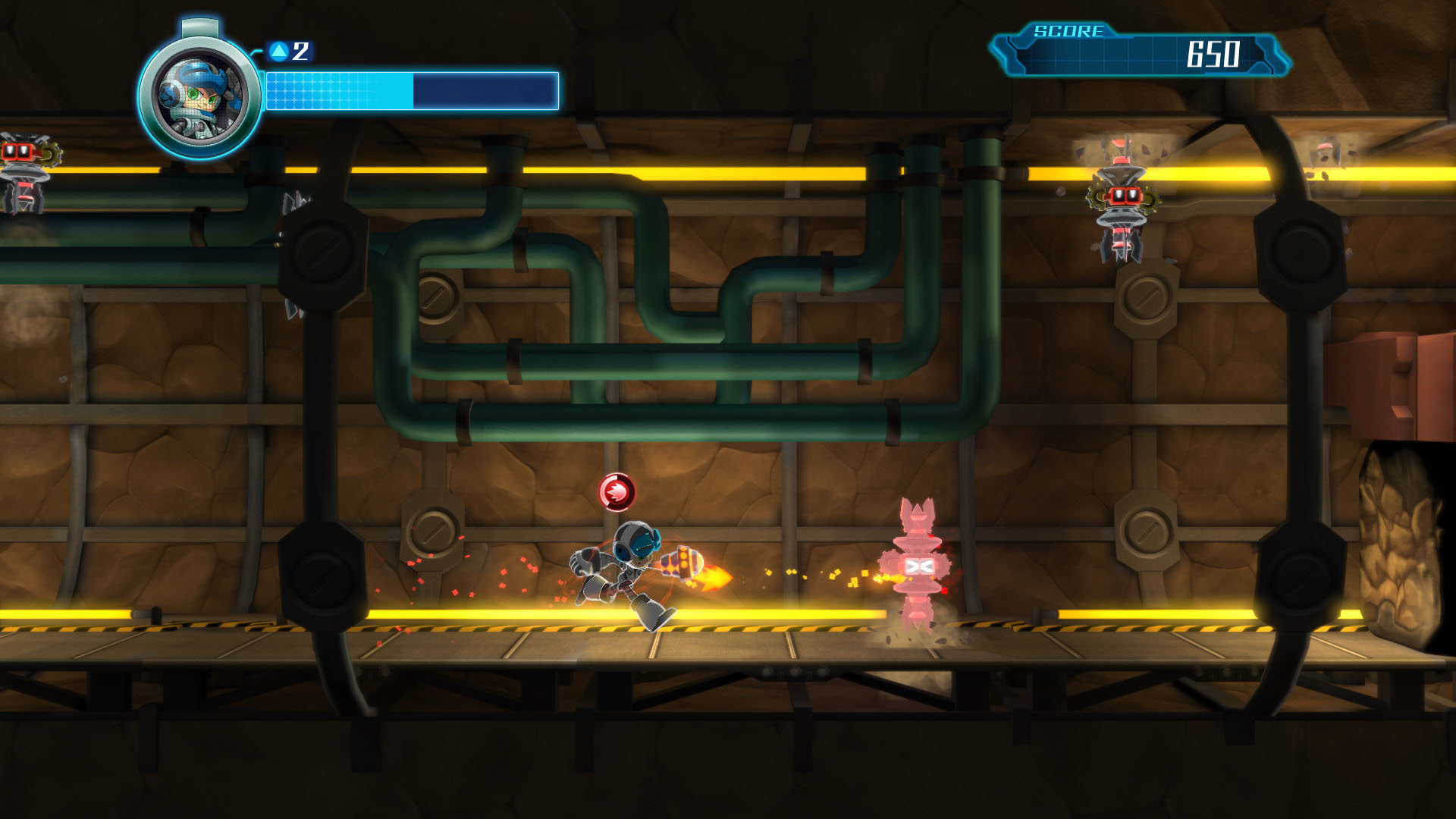
-
Mighty No. 9
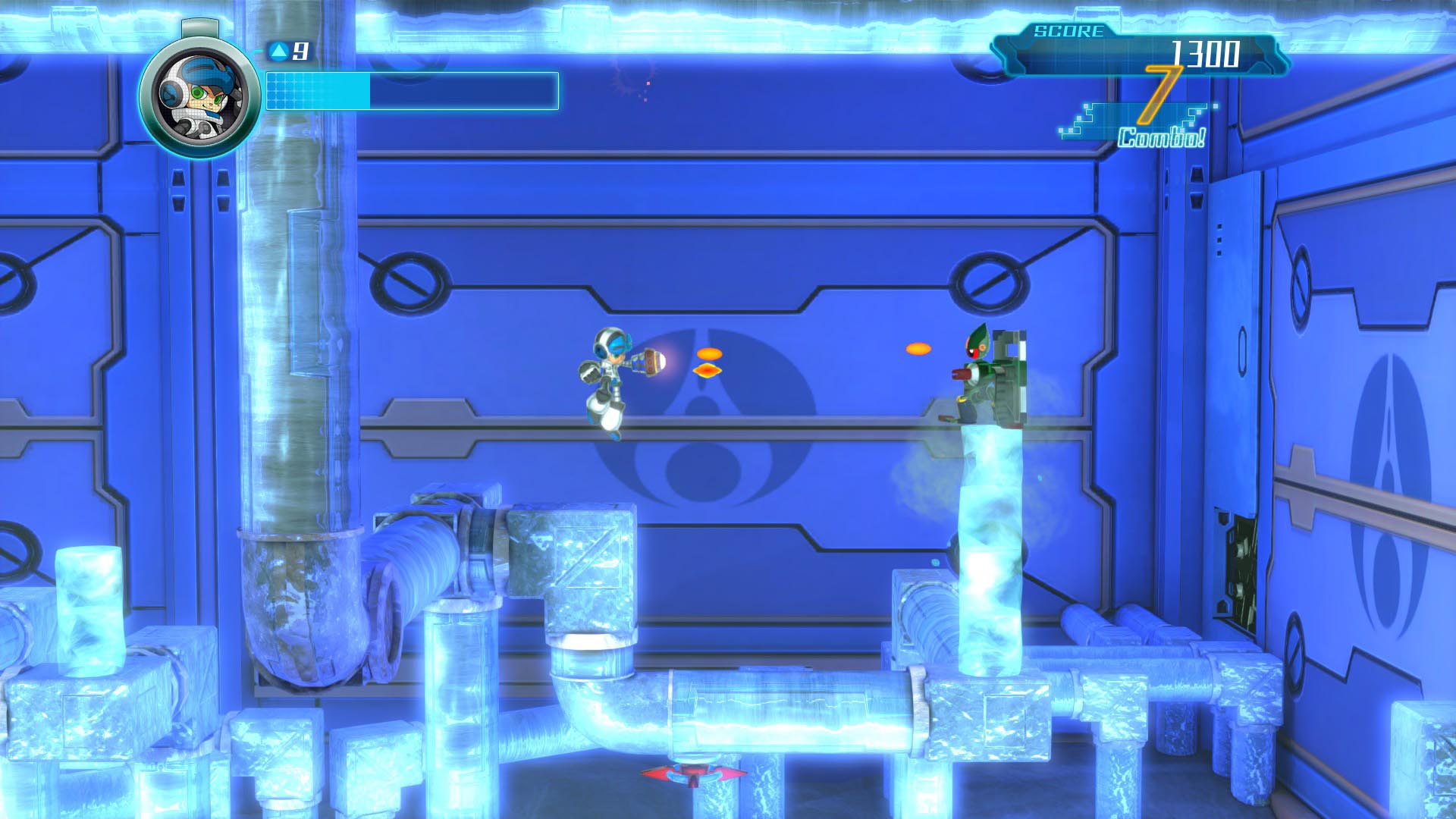
-
Mighty No. 9
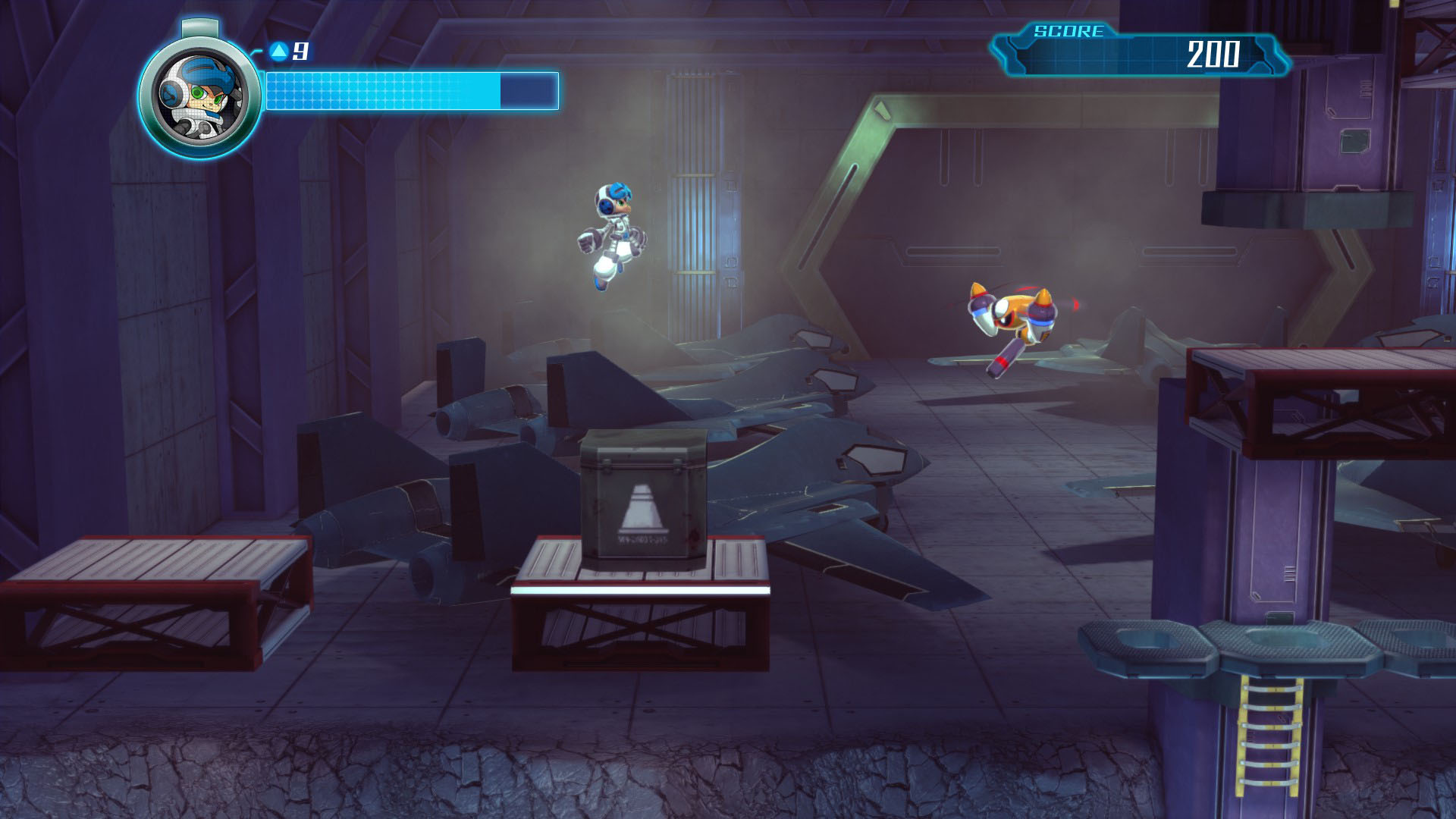
-
Mighty No. 9
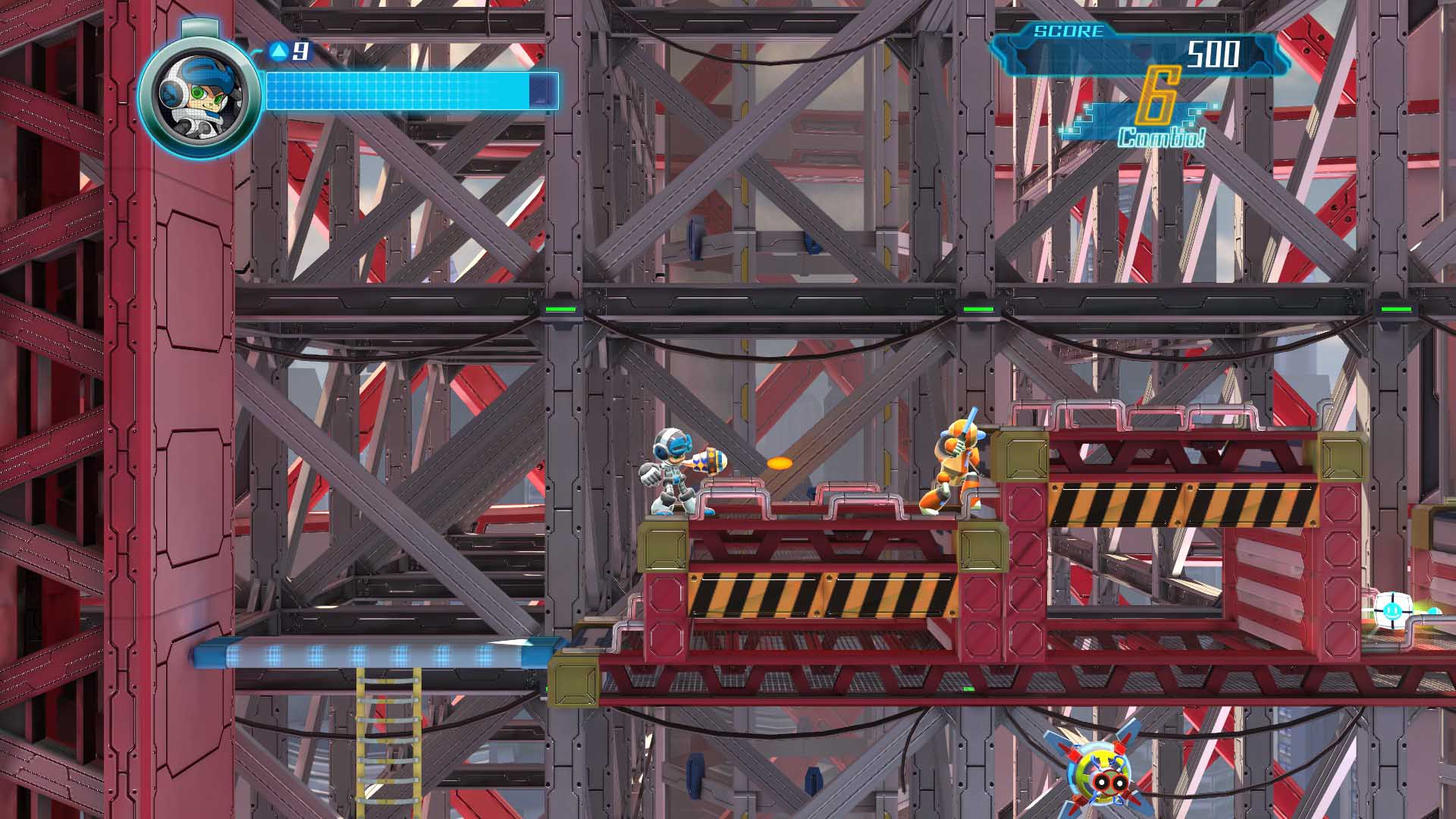
-
Mighty No. 9
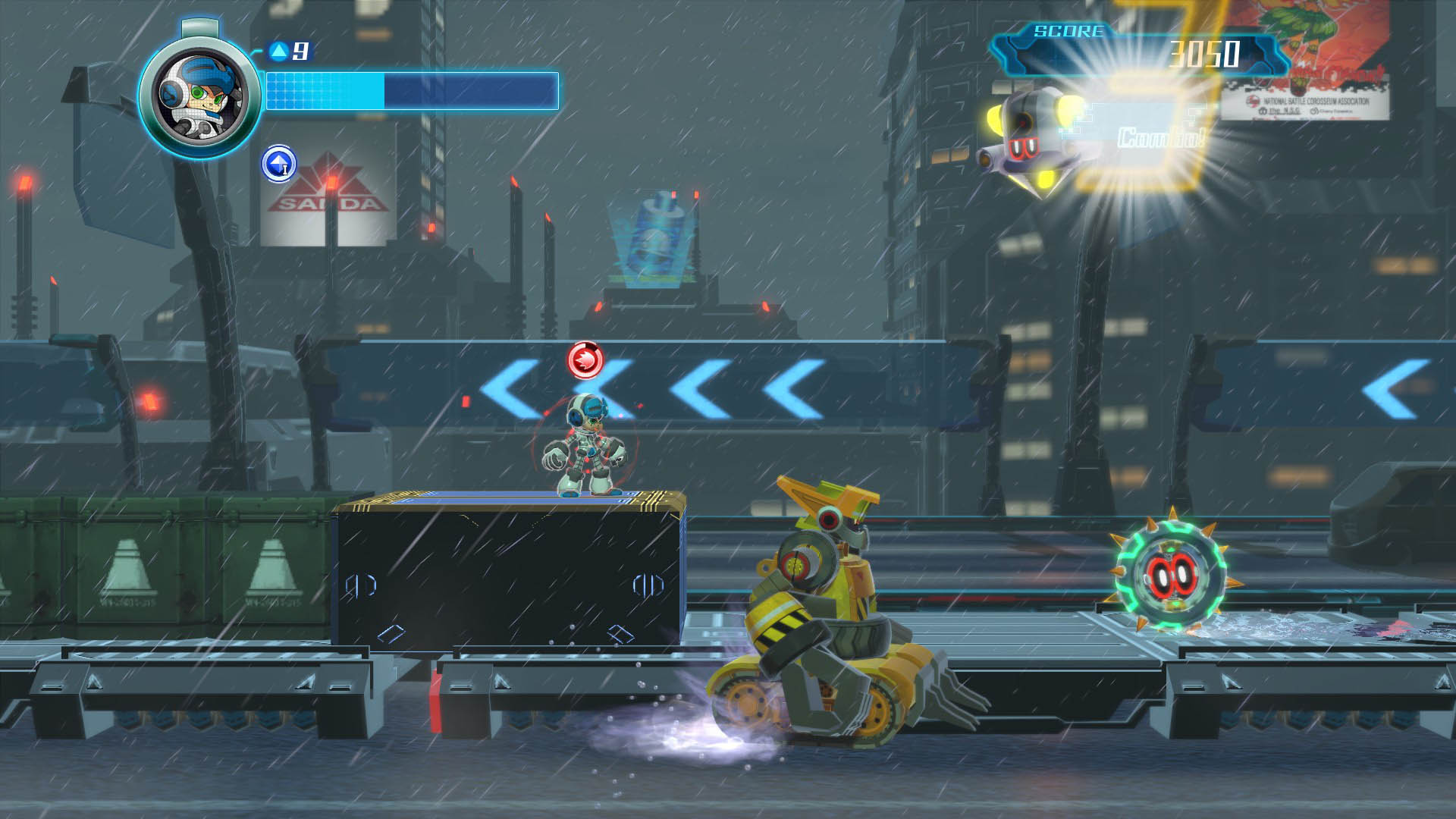
-
Mighty No. 9
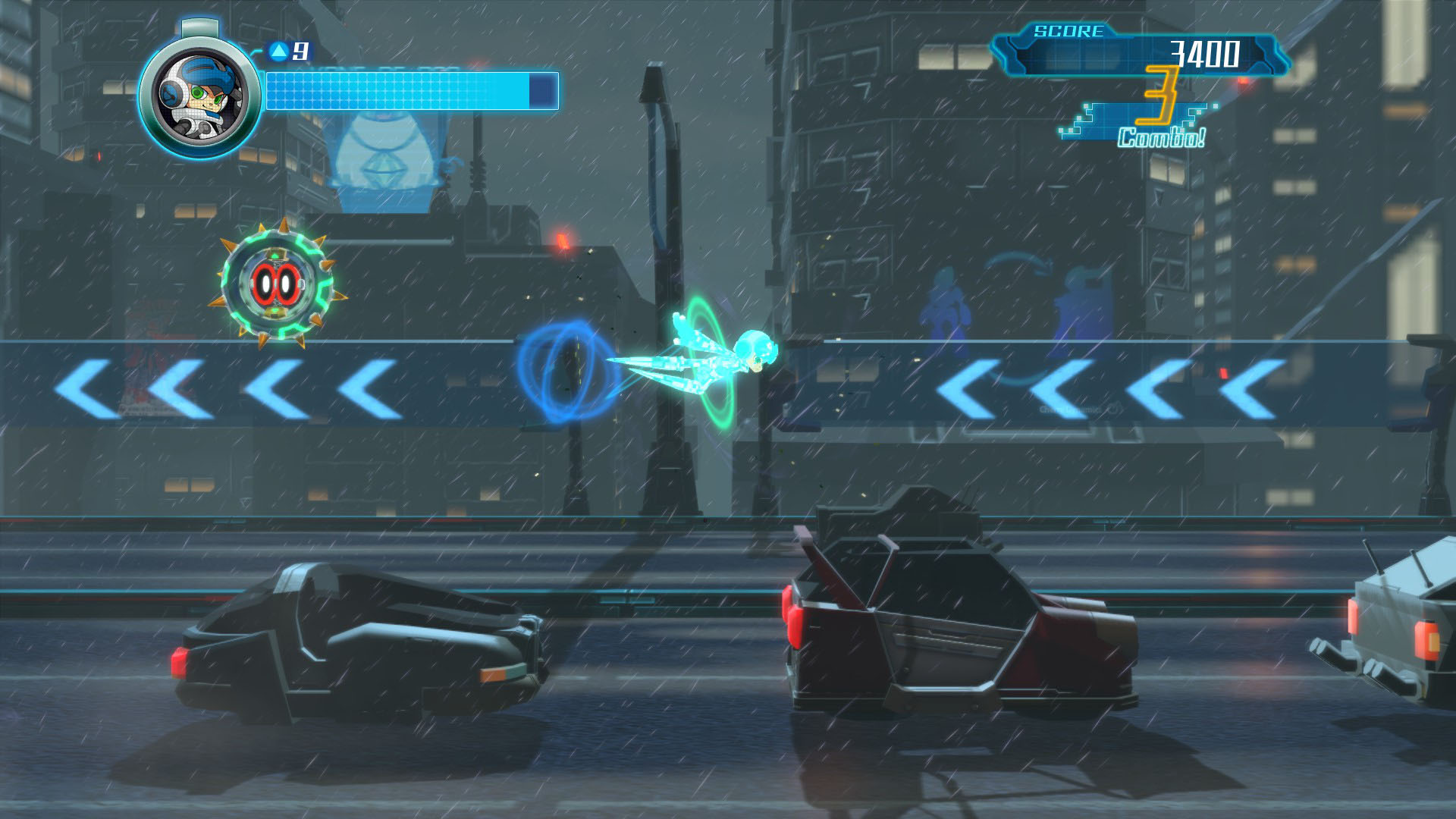
-
Mighty No. 9
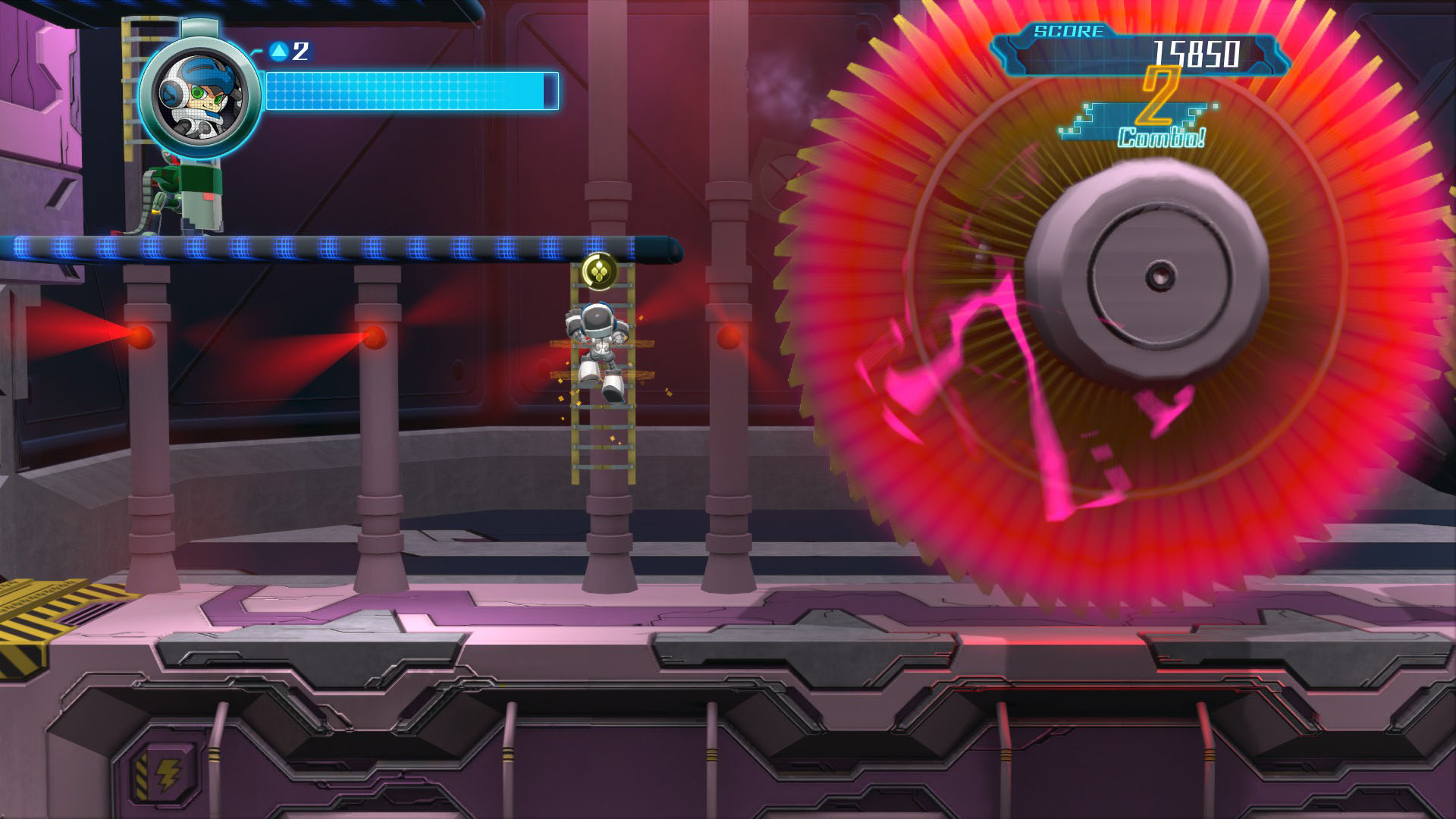
-
Mighty No. 9
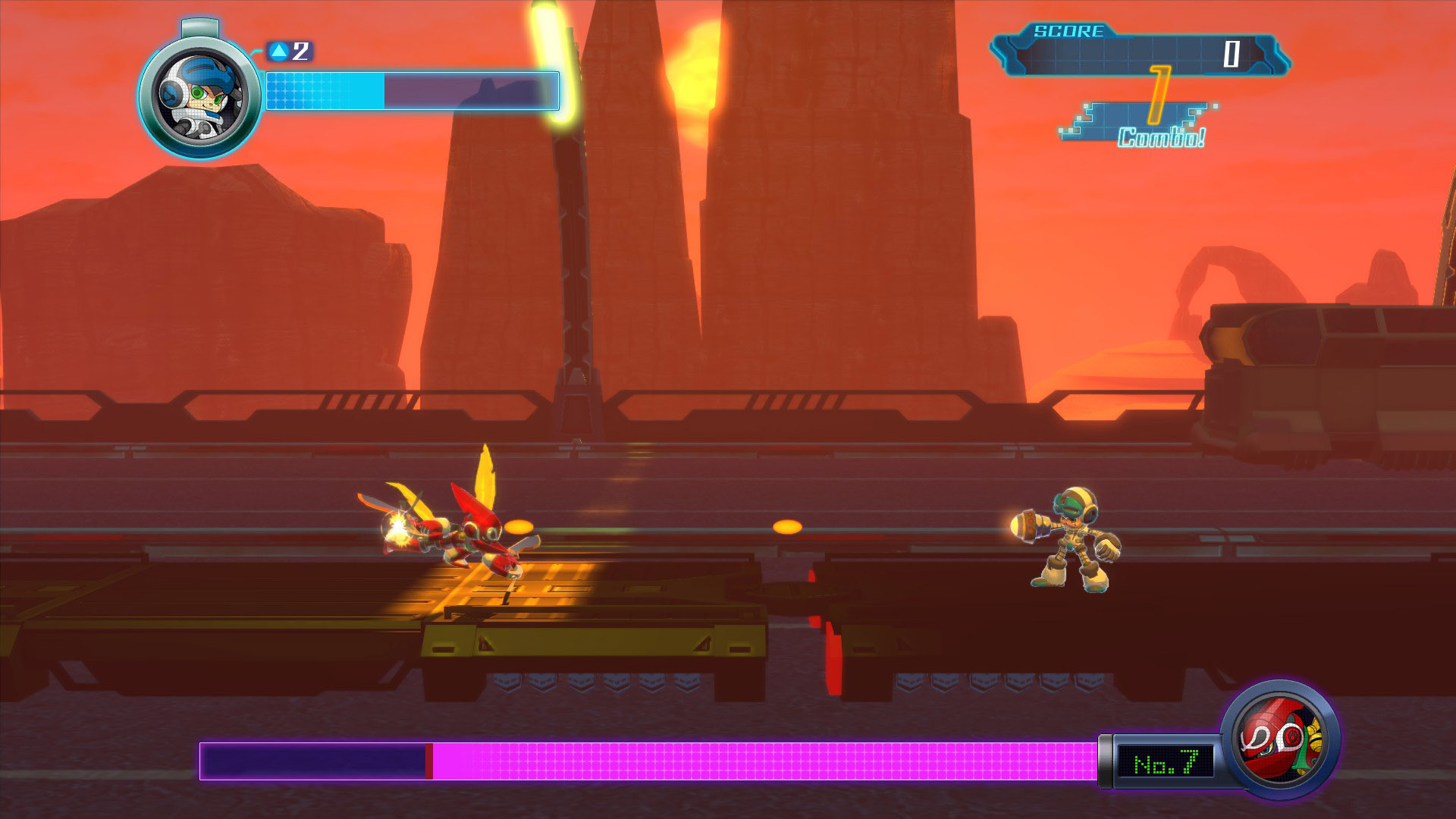
-
Mighty No. 9
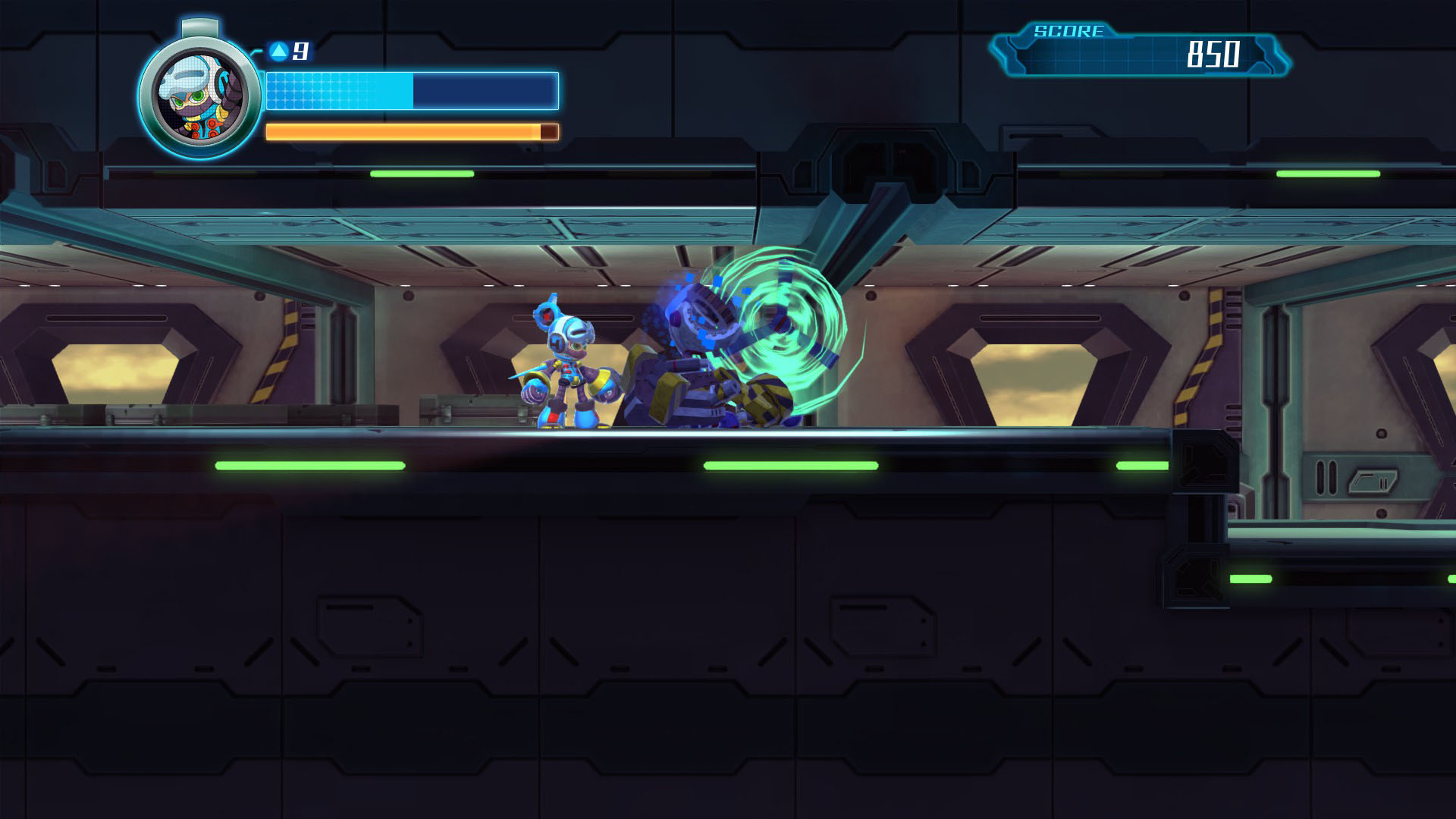
-
Mighty No. 9
